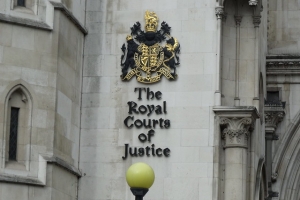Support migrant centric journalism today and donate

UK visa and immigration enforcement will be exempt from new General Data Protection Regulations (GDPR), to be introduced by the EU from 25 May 2018, threatening the data rights of ‘everyone’ in the UK campaigners have warned. Campaign groups have described the exemption as ‘unnecessary’, ‘unlawful’ and ‘worryingly broad.’
Sanwar Ali workpermit.com comment
There is a serious problem with access to information. An organisation working with the Home Office will routinely avoid providing information to cover up injustice and bad behaviour. Preventing access to information can be used to make it difficult for people to find out about abusive behaviour, perjury, falsification of documentation, attacks on freedom of speech, and other misconduct. We have already seen the “Secret Police State” in action and it is horrifying to see. Access to information and a free media is essential to protect people from human rights abuses.
GDPR is the result of four years of work by the EU to overhaul data protection legislation to control the way data is used. The Data Protection Act 1998 is currently in use in the UK, implemented following the 1995 EU Data Protection Directive, but this will be replaced by the new legislation.
The purpose of GDPR is to give people more say over what companies can do with data held about them, with tough fines imposed on companies failing to adhere to the rules. However, UK visa and immigration enforcement will not be subject to GDPR legislation.
Effectively, this means that people will lose the right to demand that information collected about them be deleted. Equally, people will not be privy to any information gathered about them, or the reasons why that information is being collected and retained.
Access to vital information relevant to a UK visa case could be denied
By suspending data protection for UK visa and immigration enforcement, it could mean that when a decision is made regarding a person’s immigration status, resulting in a denial, access to information that would help them appeal their case will be restricted.
Data protection expert, Chris Pounder said: “Given the Home Office’s notoriously poor record for dealing with asylum cases fairly in the first instance – 41% were overturned on appeal in 2016 – people face being left without information that could help them successfully appeal an application that has been rejected.”
Meanwhile, director of privacy organisation DefendDigitalMe, Jen Persson claims that the immunity granted to UK visa and immigration enforcement from GDPR will impact British citizens, potentially removing the right for people to ‘control how their data is used in the event of sweeping government checks.’
UK immigration checks ‘out of control’
Unfettered access to streams of data as part of immigration checks is getting ‘out of control’ campaigners have warned. Meanwhile, Persson highlighted the government’s recent announcement that it plans to check 70 million UK bank accounts, with a view to freezing the accounts of people with irregular migration status, as an example of how the GDPR exemption clause could be used.
Under current data protection laws, a person would have the right to know why their bank account had been frozen. However, if an error was made, the new exemption would leave the account holder in the dark as to why they had been locked out of their account.
Persson said: “The exemption is a government ‘get out of jail free card’ and threatens to lead to a secret police state where anything pertaining to UK immigration enforcement goes.”
Campaign groups argue that the immunity clause will strip people of their rights if personal information is shared with the Home Office. Campaign group, Liberty, warned: “When data is shared - for example by the NHS or charities for immigration control - people would not have the right to know it was happening, or have consent to correct errors.”
Reliability of UK visa and immigration checks under scrutiny
A series of high-profile errors surrounding UK immigration cases – including an incident that led to 100 letters being mistakenly issued to EU nationals, threatening them with deportation – have ‘undermined confidence in the reliability of UK immigration checks,’ according to an article published by Sky News.
In a statement made to Sky News, responding to concerns surrounding the GDPR exemption, the Home Office said: “The exemption will only apply in cases where there is a ‘genuine likelihood’ of prejudice to immigration control.”
Meanwhile, a Home Office spokesperson insisted that measures would be put in place to safeguard data rights without hindering immigration controls, while “balancing data protection with the wider interests of society.”
An official statement released by the government said: “The restrictions will be justified on a case by case basis and are not blanket exemptions. There is also inbuilt oversight within the Bill, which makes it clear that the Information Commissioner’s Office and courts will be responsible for overseeing any complaints and providing any necessary redress.”
Hostile Britain
The exemption announcement coincides with the government’s hostile agenda towards immigrants, which attempts to make living in Britain insufferable for people with no right to remain in the country in a bid to force them to leave.
The immunity clause is an addition to current exemptions that are in place relating to crime and national security, which critics say ‘render the additional clause unnecessary.’
Mr Pounder said: “Exemptions should be used only for things which are very clearly in the public interest. We know it's nothing to do with security, it’s nothing to do with crime. Therefore, you’ve got to ask, then, what is it for?”
Workpermit.com can help with Tier 2 Visa Sponsorship Licences and Tier 2 Visas
If you need help with a Tier 2 Sponsorship Licence or would like help with complying with your Tier 2 Sponsorship Licence obligations workpermit.com can help. Call 0344 991 9222 for further details.
Workpermit.com has almost thirty years of experience in immigration services, and have helped thousands of people to live and work in the UK.





















